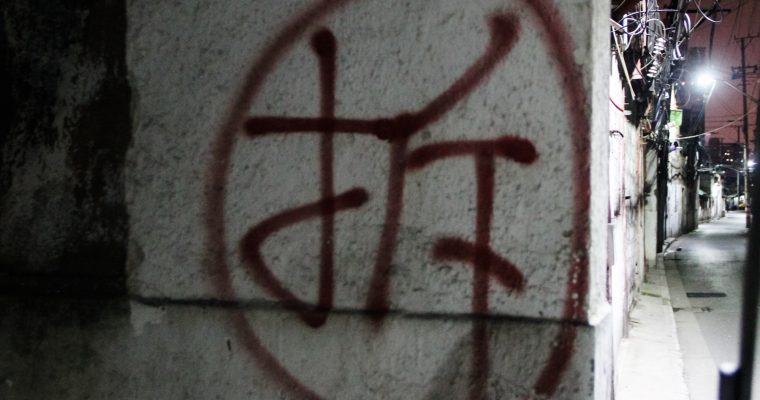Like any major metropolitan city, Shanghai has its dark side. One evening after dinner at a fancy restaurant on the Bund, a stroll led us to a neighborhood marked for eviction. The street was quiet. The fluorescent street light shines bleakly on the walls, painted and repainted with layers of whitewash. The power lines hung twisted and mangled over the narrow path, as if left there by a knitting mother who had grown tired of untangling her yarn.
The houses to be torn down are marked with a large red character chai inside a circle. The word literally means to dismantle. I like this translation. The dismantling applies not only to the building itself, but also to the neighborhood, the family, and the traditional way of living that once thrived within these walls.
Forced eviction is a topic of controversy and debate in China due to its unique property laws. Technically still a Communist country, when China started allowing private ownership of property, they made it impossible for people to actually own the land. Instead, the state retains ownership to the land and provides a 70 year lease to the developer. As China grew faster than people’s expectations in the past three decades, expropriation of the land in the name of “public interest” has been rampant, and legal.
Although the government pays a resettlement fee, in places like Shanghai, it is generally not enough for someone who lived in the city to relocate to any new developments remotely close to the city. Not that there is a lack of supply in terms of rentals. Chinese people have long placed their faith in real estate over the stock market, and even middle class families will generally try to buy a second or third unit for investment purposes. This has driven up the price of real estate, but depressed the price for rentals.
Not that it helps the people who live in these decrepit areas of Shanghai. Many of these families live by collecting recycling, selling cheap souvenirs or food on street corners, or panhandling. They don’t have the money to afford a home in the city, nor can they afford to move outside of the city and commute daily for their meager living. Some of them may not even be living there legally. So they trudge on, living in buildings without walls, until the day the demolition crew shows up at their door.
The next time I visit Shanghai, I doubt I will be able to find this street again. It may have been replaced by a multimillion dollar residential high rise, or yet another fancy shopping mall. This side of Shanghai is not beautiful and glamorous, but I’m glad I was able to get a closer look of the growing pains the city, and the country, is going through.







Leave a Reply